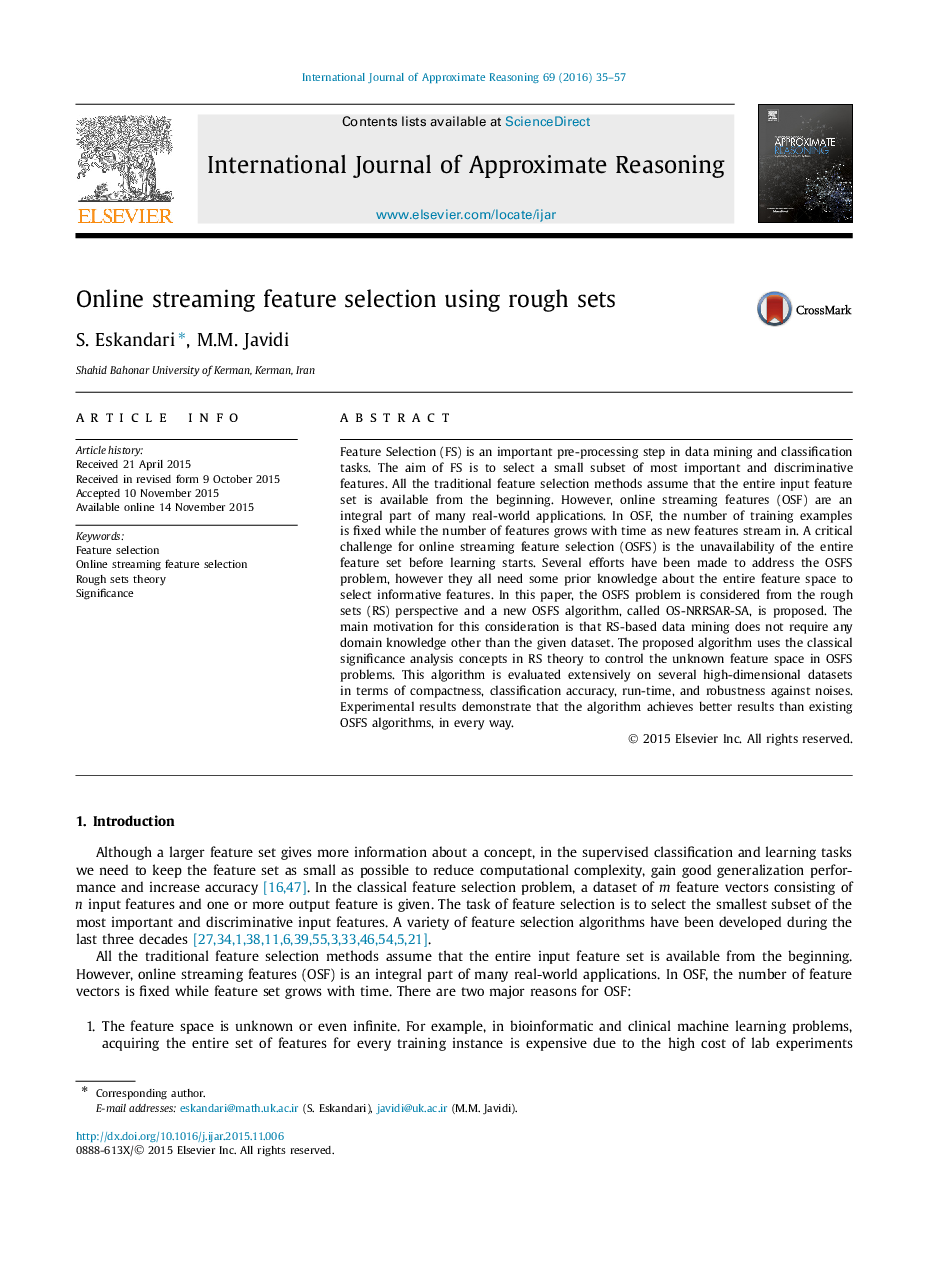| کد مقاله | کد نشریه | سال انتشار | مقاله انگلیسی | نسخه تمام متن |
|---|---|---|---|---|
| 6858950 | 1438435 | 2016 | 23 صفحه PDF | دانلود رایگان |
عنوان انگلیسی مقاله ISI
Online streaming feature selection using rough sets
ترجمه فارسی عنوان
انتخاب ویژگی های آنلاین جریان با استفاده از مجموعه های خشن
دانلود مقاله + سفارش ترجمه
دانلود مقاله ISI انگلیسی
رایگان برای ایرانیان
کلمات کلیدی
انتخاب ویژگی، انتخاب آنلاین جریان آنلاین، نظریه مجموعه خشن، اهمیت
موضوعات مرتبط
مهندسی و علوم پایه
مهندسی کامپیوتر
هوش مصنوعی
چکیده انگلیسی
Feature Selection (FS) is an important pre-processing step in data mining and classification tasks. The aim of FS is to select a small subset of most important and discriminative features. All the traditional feature selection methods assume that the entire input feature set is available from the beginning. However, online streaming features (OSF) are an integral part of many real-world applications. In OSF, the number of training examples is fixed while the number of features grows with time as new features stream in. A critical challenge for online streaming feature selection (OSFS) is the unavailability of the entire feature set before learning starts. Several efforts have been made to address the OSFS problem, however they all need some prior knowledge about the entire feature space to select informative features. In this paper, the OSFS problem is considered from the rough sets (RS) perspective and a new OSFS algorithm, called OS-NRRSAR-SA, is proposed. The main motivation for this consideration is that RS-based data mining does not require any domain knowledge other than the given dataset. The proposed algorithm uses the classical significance analysis concepts in RS theory to control the unknown feature space in OSFS problems. This algorithm is evaluated extensively on several high-dimensional datasets in terms of compactness, classification accuracy, run-time, and robustness against noises. Experimental results demonstrate that the algorithm achieves better results than existing OSFS algorithms, in every way.
ناشر
Database: Elsevier - ScienceDirect (ساینس دایرکت)
Journal: International Journal of Approximate Reasoning - Volume 69, February 2016, Pages 35-57
Journal: International Journal of Approximate Reasoning - Volume 69, February 2016, Pages 35-57
نویسندگان
S. Eskandari, M.M. Javidi,
